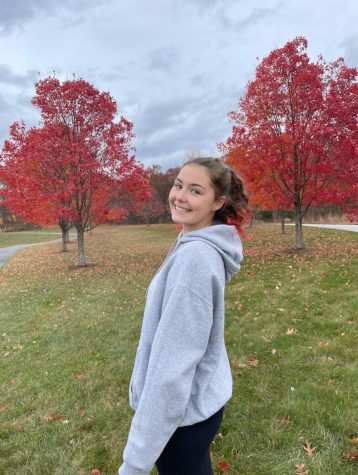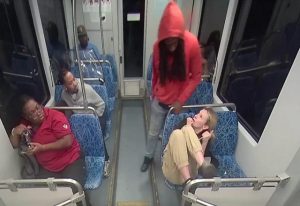The Semester Class You’ll Want to Last All Year
December 19, 2019
Despite only being a freshman, I know for a fact Legal Studies will be the first elective I select my senior year.
When asked if he’d recommend this class to someone else, senior Adam Dapolite shares without hesitation, “Absolutely. Especially if you have that interest in law and political science, and really anything. It pertains to all parts of life so really if you have an interest in any of those areas specifically though, I would definitely recommend it.”
Legal Studies “promises to be a class they’ll always remember” states Nancy Power, the founder and current co-teacher of the class. Alongside Ms. Power is Mr. Ed Belbin who has taught the class for the past six years.
When hearing about Legal Studies, students may be under the misconception that it’s just another boring history class. On the contrary, Legal Studies is one of the most vigorous classes offered at WHS.
Senior Tara Dupree comments, “I think it’s a really great way to be able to form new questions and argue your side and I think that’s something that’s really important.”
The first quarter of Legal Studies is more of a traditional classroom structure: both Ms. Power and Mr. Belbin’s classes gather in Mr. Belbin’s classroom to set the foundation of knowledge for the class. They examine both previous and current court decisions along with existing social issues while simultaneously diving deeper into the first and fourth amendments (right to free speech and right against unreasonable search and seizure).
The key aspect of quarter one is interpretation. How did the courts interpret specific laws? Do they still view them the same way? How do students look at certain issues versus adults? These are all questions Legal Studies explores in the first quarter. The second quarter is where the real competition begins.
Anyone who took Legal Studies can tell you just how intense second quarter is. Second quarter is when a mock trial case designed by the National Institution of Trial Advocacy (NITA) is assigned to Mr. Belbin and Ms. Power’s classes. One class becomes the prosecution and the other is the defense. As in an actual case, each side has to argue their perspective to the best of their ability using their resources.
After establishing the facts, students are assigned roles as either a lawyer or a witness. Lawyers may be asking direct questions to the witness their side has chosen, cross examining the witness for the other side, or be responsible for the opening or closing statements. Through their intertwining roles and facts, students then collaborate with one another editing each other’s questions and vocabulary selection. Before they know it, the trial will be before the two classes and they will be prepared to present their case in the best way possible.

This year, the fictional case is about a woman named Trudi Doyle, who allegedly shot and killed her boyfriend Johnny Diamond. Mr. Belbin’s class is the prosecution, trying to prove Trudi Doyle guilty of first degree murder. Ms. Power’s class is the defense arguing Doyle’s innocence. Students in both classes have analyzed the provided evidence and circumstances to defend their side. The classes have been fortunate enough to have many professionals come in to assist them such as Detective Dapolite, Mr. Fontaine, Ms. Hardiman, Mr. Barakat, and Mr. Spofford.
Legal Studies is only a semester class for seniors so time is of the essence so working efficiently to execute the class is vital. Soon enough the jury full of community members and retired teachers, the judge who is usually from a District Attorney’s office, and the classes themselves will be in the Forbes auditorium on January 10 for the final product.
So how are the students feeling about the mock trial just around the corner? Dupree says she’s excited, Dapolite is a bit anxious but is remaining calm, and everyone else is likely scattered in between.
Sources from Mr. Belbin’s class and Ms. Power’s class have both claimed their sides are going to take the win. However, it will all depend on who has the stronger case.
Dapolite even is willing to say, “Oh it’s (the winning team) going to be us. No question. No doubt. We have a really solid case built up and I think we’re going to do well on the day of the trial.”
Whether this Dapolite’s confidence is a reflection of their case, no one will know until January 10.
Legal Studies is a class that benefits all students because it is an interdisciplinary class. It incorporates realistic skills such as collaborating with peers, taking a position on an issue and justifying your opinion, understanding and respecting others’ perspectives, and enhancing strong presentational skills.
According to Mr. Belbin, the goal of this class is to “get kids to be really independent thinkers, ask excellent questions, and perpetuate a democracy.”
In addition, depending on the case, a wide variety of topics are involved. This year, forensics and procedures are essential to the case along with the legal and political science elements. Regardless of whether you are more of a STEM person or a social science person, Legal Studies has something to offer. Point being, the class is an opportunity for students to work with topics that they are genuinely interested in.
Legal Studies is a popular elective, if not for the interdisciplinary aspect then for the fact that students are allowed to interpret things differently. Students may analyze evidence is new ways, raise points that are unthought of, and are permitted to debate in order to show their classmates where they are coming from. This discussion-based structure doesn’t always occur in all classrooms, which is just one reason why Legal Studies is a phenomenal class to take.
Dapolite says it best when he reflects, “The law penetrates every part of your life. You don’t think about it quite often. You’re not necessarily thinking ‘wow, this is the first amendment’ and ‘oh this is the fourth amendment’ you don’t think about that. And really you get to see that when you get into this class.”








